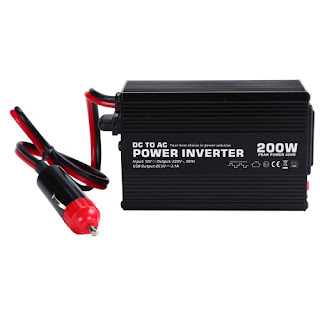150w pure sine wave inverter generally converts Direct Current (DC) to Alternating Current (AC) that exhibits sinusoidal current. Modified sine wave inverters are used to convert DC to AC, but these exhibit non-sinusoidal current. Depending on the application, a significant effect can be produced by the difference between the currents. If your home or building uses a DC power source (e.g. solar panels) and with electrical devices and appliances it experiences problems then the problem may be in the electricity itself and not the electrical system or the products that connect to it.
Usage of Energy
The
annoyances that are stated above generally cease when modified sine wave
inverters are replaced with true sine wave inverters. But the effects produced
on sensitive electronics and appliances can be more than annoying.
Non-sinusoidal input can lead the equipment to operate less efficiently. In
effect, to carry out its function equipment must use more energy than normal.
This effect has a minimal impact on energy usage for devices that don't consume
much energy like speakers. On the other hand for equipment such as lighting
ballasts, the impact on energy usage is pronounced.
If
a building is using a DC power source and consists of electronic equipment that
is designed to receive sinusoidal AC then for energy efficiency using true sine
wave inverters are essential. If provided the right conditions then by using
this 200w pure sine wave inverter
you can reduce a building's annual energy bill.
Wearing And Tearing
Equipment that utilizes energy inefficiently will operate inefficiently. In a lot of cases, it has been seen that inefficient operation results in the form of unforeseen maintenance issues and sudden mechanical failures. With complex systems, you will find these types of cases whose parts are prone to experience wear, such as motors. Along with driving up the energy bill by the use of modified sine wave inverters in the wrong equipment can also increase maintenance costs.
Compared to that 300w pure sine wave inverter that emits a sinusoidal current, inverters that emit a non-sinusoidal current are less expensive. However, by the increased energy usage the cost savings can be negated. Follow us on Facebook






No comments:
Post a Comment